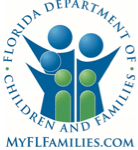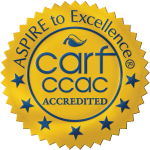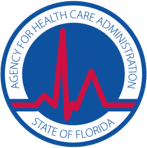Partial Hospitalization Program (PHP)

Lifeskills South Florida Outpatient Center offers clients a partial hospitalization program (PHP), which is an intensive five-day-a-week treatment program, consisting of highly structured, evidence-based therapy during the day. PHP provides clients autonomy in a safe environment to practice recovery skills in real-life situations. Our clinicians work with clients to provide a treatment plan that includes individual and group therapy sessions that help them learn skills needed to live an independent life outside of treatment. Many clients in PHP may be working, volunteering, or attending school.

Partial Hospitalization Program (PHP) Specialty Groups
The basis of our outpatient programming at Lifeskills is group therapy. Provided below are descriptions of some of the groups offered as part of our PHP.
Applying Cognitive Behavioral Skills Group
Life experiences may contribute to the development of faulty thought patterns. These deficits in thinking can lead to behavioral problems and affect our relationships, job promotions, completing an education, and accomplishing other goals. This group teaches clients how to apply cognitive behavioral therapy (CBT) techniques to everyday life by challenging and eliminating negative thinking.
Body and Health Group
Health and wellness are a large part of ensuring sustained recovery. It’s vital that clients understand their medical conditions, can manage their medications, address sleep hygiene, maintain proper nutrition, and participate in exercise. This group addresses how healthy behaviors contribute to improved mental health.
Dialectical Behavior Therapy (DBT) Group
Impulsivity of actions is a common characteristic of a dysregulated emotional state. Reacting to feelings rather than responding can lead to making decisions based on something that’s transient. This group explores past ineffective behaviors which have led to self-destructive patterns, teaches coping skills for urges and cravings to escape, and helps clients become more mindful of their choices and actions.
Family Dynamics Group
Processing issues related to family dynamics can create changes in the way that the family system functions. Part of therapy involves processing things related to family and thinking about what needs to change to create wellness throughout the entire family dynamic. This group allows for supporting change and identifying ways to strengthen family bonds, establish boundaries, and improve communication.
Healthy Relationships Group
As the bedrock to recovery from a mental health disorder and/or substance use disorder, building healthy relationships with others is a critical component to personal growth. This group explores a wide range of topics that affect relationships in a negative way as well as focusing on key strategies laid out by the group therapist to help improve interpersonal effectiveness.
Mindfulness Group
In a world filled with distractions finding the time and learning how to use effective skills to stay present can be challenging. This groups focuses on psychoeducation, the positive effects of mindfulness practice (i.e., reducing anxiety and depression), and real-world applications that are tailored to each client. Group members can also share personal experiences on what works best for them and how they can increase the effectiveness of their mindfulness skills.
Nutrition Group
This group is led by a nutritionist and registered dietician and involves educating clients regarding food choices, nutritional eating for optimal health, food preparation, and budgeting and shopping for groceries. Using nutritional knowledge helps group members make better food choices which contributes to a healthy lifestyle.
Primary Process Group
Each client’s history and unique experiences are important and there’s a great deal of value in sharing those experiences. For example, personal difficulties can be discussed openly with peers experiencing similar issues. And helping a client process their feelings can help them feel validated and increase insight into their emotions and behaviors. Open discussion in groups allows our clients to gain the motivation and the skills they need to change unproductive and destructive thoughts, feelings, and behaviors.
Relapse Prevention Group
Changing people, places, and things associated with past alcohol and drug abuse is imperative to decreasing chances of relapse. It’s vital that clients surround themselves with like-minded peers who are motivated to stay sober and make healthy friendships. Our relapse prevention program reviews skills and teaches techniques that have proven success for maintaining abstinence.
Seeking Safety Group
Seeking Safety is a treatment method used to help clients cope with their past traumas. In this group, clients are taught specific evidence-based strategies for coping with trauma triggers. The goal is to prevent remaining constantly focused on the trauma in a way that prevents healthy functioning.
Vocational Group
Part of the wellness journey at Lifeskills involves helping our clients find ways to help others and to contribute to society. In this group, clients identify skills, abilities, and proficiencies through a supportive group process. Members of this group are taught how to keep a job and they practice professional skills, behaviors, and competencies including resume writing, and interviewing skills.
We are here to help.
Call 954-953-1742 to speak with our admissions team.






